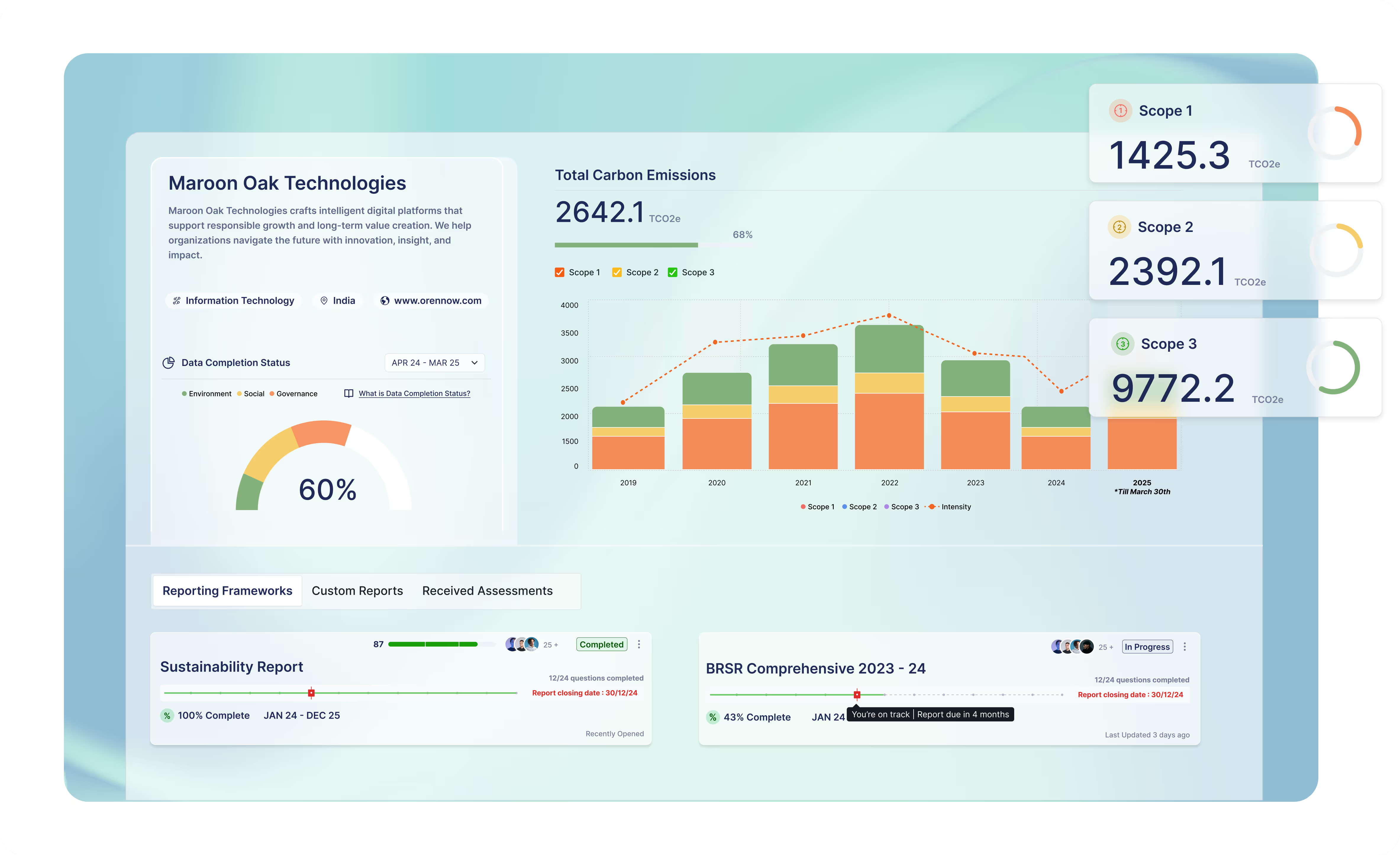Essential ESG Metrics for CFOs: A Comprehensive Guide

As companies navigate increasingly stringent reporting requirements, it is crucial for Chief Financial Officers (CFOs) to stay ahead of trends and ensure their environmental, social, and governance (ESG) disclosures are up-to-date. While CFOs traditionally focus on financial matters, the importance of non-financial aspects—such as environmental impact, social responsibility, and governance practices—cannot be overstated. These elements significantly influence a company’s overall performance and sustainability. This guide outlines essential ESG metrics for CFOs to monitor, helping them drive sustainable success.
The Significance of ESG Metrics
Understanding and managing ESG metrics is pivotal for CFOs as they not only reflect a company's commitment to sustainability but also impact financial performance and investor relations. Effective ESG reporting involves collecting comprehensive data from various departments, analysing it, and ensuring accurate disclosure in line with global standards. Familiarity with ESG metrics allows CFOs to make informed decisions and enhance their company's reputation.
Environmental Metrics: Measuring Impact and Efficiency
Environmental metrics focus on how a company's operations impact the natural world. These metrics are crucial for demonstrating a company's commitment to environmental sustainability and can significantly affect its overall ESG rating. Key environmental metrics include:
- Carbon Footprint: This measures the total greenhouse gas (GHG) emissions a company generates, including Scope 1 (direct), Scope 2 (indirect from energy consumption), and Scope 3 (indirect from the supply chain and other activities). Accurate carbon accounting and understanding carbon neutral vs. net zero goals are essential for effective environmental reporting.
- Energy Efficiency: This metric evaluates total energy consumption versus the percentage sourced from renewable energy. Tracking energy intensity helps in assessing how effectively a company uses energy resources.
- Water Usage: Companies need to measure total water consumption and the percentage of water that is reused or recycled. This is vital for managing water footprints and ensuring responsible water use.
- Waste Management: Assessing the total weight of waste produced and the percentage diverted or reused is key for evaluating waste management practices and minimising environmental impact.
Technology, such as ESG reporting software and environmental accounting tools, can aid CFOs in tracking and analysing these metrics efficiently.

Social Metrics: Enhancing Employee and Community Relations
Social metrics address how a company interacts with and supports its stakeholders, including employees, customers, and shareholders. These metrics are crucial for maintaining a positive reputation and ensuring long-term stability. Key social metrics include:
- Diversity and Inclusion: Monitoring the percentage of gender and ethnic identity representation within management and the broader workforce helps in evaluating the company’s commitment to diversity and inclusion.
- Employee Turnover: Analysing employee turnover rates, including voluntary versus involuntary separations, provides insight into job satisfaction and organisational stability.
- Work-Related Injuries: Tracking the number of work-related injuries per hours worked is essential for maintaining a safe working environment and adhering to occupational health and safety standards.
- Employee Engagement: Measuring employee engagement through surveys can gauge satisfaction levels and the effectiveness of company policies in creating a motivating work culture.
Implementing effective policies and HR initiatives to improve these social metrics is vital for enhancing overall employee satisfaction and community relations.

Governance Metrics: Ensuring Accountability and Transparency
Governance metrics focus on the internal structures and practices of a company. These metrics are crucial for demonstrating transparency, accountability, and adherence to ethical standards. Key governance metrics include:
- Board Diversity: Assessing the diversity of the board of directors in terms of gender and ethnic identity helps in evaluating governance practices and promoting inclusive decision-making.
- Executive Compensation: Analysing the ratio of CEO compensation to the median employee salary ensures fair and equitable pay practices.
- ESG Policy Development: Measuring the number of ESG policies implemented and the percentage of employees trained on these policies is essential for ensuring compliance and effective ESG management.
- ESG Risk Incidents: Tracking the number and impact of ESG risk incidents, including any penalties incurred, provides insight into the effectiveness of risk management strategies.
As reporting standards evolve, CFOs must stay informed about ESG reporting standards and ensure compliance with regulations such as BRSR (Business Responsibility and Sustainability Reporting) and GRI (Global Reporting Initiative) guidelines.
Conclusion: The Role of CFOs in ESG Reporting
The role of CFOs in ESG reporting is becoming increasingly critical as companies face tighter regulations and higher expectations for transparency. By focusing on environmental, social, and governance metrics, CFOs can drive sustainable success and contribute to a more responsible and accountable business environment. Tracking these metrics, leveraging advanced ESG reporting tools, and staying abreast of industry trends will enable CFOs to build a more sustainable future for their company and positively impact the world.
For further insights into ESG reporting and metrics, explore additional resources and consider engaging with ESG rating agencies, participating in ESG courses, or utilising ESG software solutions to enhance your company’s sustainability practices.
Latest Blog Posts
Dive into our blog for insights on making your organization more sustainable.
Sustainability Simplified
Wherever you are in your sustainability journey, we help you advance with confidence.
Schedule a Call



.avif)

